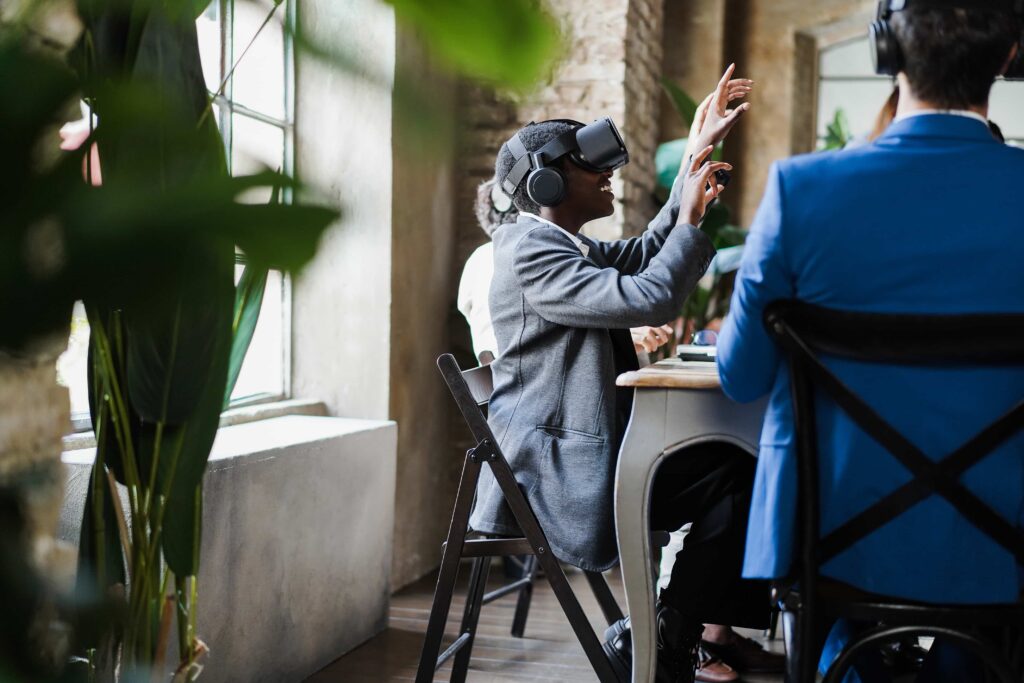Introduction
In today’s rapidly evolving landscape, businesses are constantly seeking new ways to stay competitive and relevant. The ever-accelerating pace of technological advancements and shifts in consumer behavior are reshaping the business landscape. To thrive in this dynamic environment, organizations must embrace innovative strategies and adapt to emerging trends. In this article, we explore some of the key innovations and trends that are shaping the future of business and driving transformation across industries.
Artificial Intelligence (AI) and Machine Learning
Artificial Intelligence (AI) and Machine Learning (ML) have become game-changers for businesses across various sectors. AI-powered applications are enabling automation, streamlining processes, and enhancing decision-making capabilities. From chatbots providing personalized customer support to predictive analytics optimizing supply chain management, AI is revolutionizing the way businesses operate.
Machine Learning, a subset of AI, leverages data to improve algorithms and make predictions without explicit programming. It enables businesses to identify patterns, anticipate trends, and deliver personalized experiences to customers. As AI and ML continue to advance, their integration into business processes will become even more prevalent, driving efficiency and innovation.

Internet of Things (IoT)
The Internet of Things (IoT) refers to the network of interconnected devices and objects that can collect and exchange data over the internet. This technology is transforming industries such as healthcare, manufacturing, and logistics. IoT devices and sensors can monitor and optimize processes, enhance product functionality, and provide valuable insights for data-driven decision-making.
For instance, in the healthcare sector, IoT-enabled medical devices can remotely monitor patients’ health conditions, allowing for early detection of health issues and reducing hospital readmissions. In manufacturing, IoT helps in predictive maintenance, reducing downtime and improving productivity. As IoT technology becomes more widespread, businesses will capitalize on its potential to create smarter, more efficient operations.
Blockchain Technology
Blockchain technology, renowned for its association with cryptocurrencies, offers far-reaching applications beyond digital currencies. Blockchain is a distributed and immutable ledger that ensures transparency, security, and trust in transactions. Its decentralized nature eliminates the need for intermediaries and offers new possibilities for various industries.
In supply chain management, blockchain can track the provenance of products, ensuring authenticity and reducing counterfeiting. Smart contracts on blockchain automate agreements and transactions, enabling secure and efficient business dealings without intermediaries. As blockchain matures, businesses will explore more innovative use cases, revolutionizing processes across finance, real estate, and more.
Remote Work and Hybrid Workforce Models
The COVID-19 pandemic accelerated the adoption of remote work, with businesses embracing flexible work arrangements. Remote work allows organizations to tap into a global talent pool, promote work-life balance, and reduce overhead costs associated with physical offices.
The hybrid workforce model combines remote and in-office work, offering employees the flexibility to choose their work environment. Companies that successfully implement hybrid work models can enhance productivity, employee satisfaction, and attract top talent.
Sustainability and Corporate Social Responsibility (CSR)
As environmental concerns escalate, consumers are placing increased importance on sustainability and CSR initiatives. Businesses are recognizing the significance of adopting eco-friendly practices, reducing their carbon footprint, and supporting social causes.
Companies that prioritize sustainability not only contribute to a better world but also attract environmentally conscious customers and investors. CSR efforts can build strong brand reputation, foster customer loyalty, and improve employee engagement.
E-Commerce and Omnichannel Retail
E-commerce has revolutionized the way consumers shop, offering convenience and an extensive array of products. With the rise of online marketplaces and social commerce, businesses must establish a robust online presence to remain competitive.
Omnichannel retail is another trend that integrates physical stores, online platforms, and mobile apps to provide a seamless shopping experience. Customers expect consistent service across channels, and businesses must leverage data-driven insights to deliver personalized interactions and recommendations.
Conclusion
The future of business is undeniably intertwined with innovation and emerging trends. To stay ahead in this rapidly evolving landscape, businesses must embrace technological advancements like AI, ML, IoT, and blockchain. Embracing remote work and hybrid workforce models can foster a culture of flexibility and efficiency.
Sustainability and CSR initiatives not only benefit society and the environment but also position businesses favorably in the eyes of consumers. E-commerce and omnichannel retail are critical for companies to cater to changing consumer preferences and stay relevant in the digital age.
In conclusion, businesses that embrace innovation, prioritize sustainability, and adapt to evolving consumer behaviors will thrive in the future. By staying agile and proactive, organizations can navigate the changing business landscape and unlock new opportunities for growth and success.

